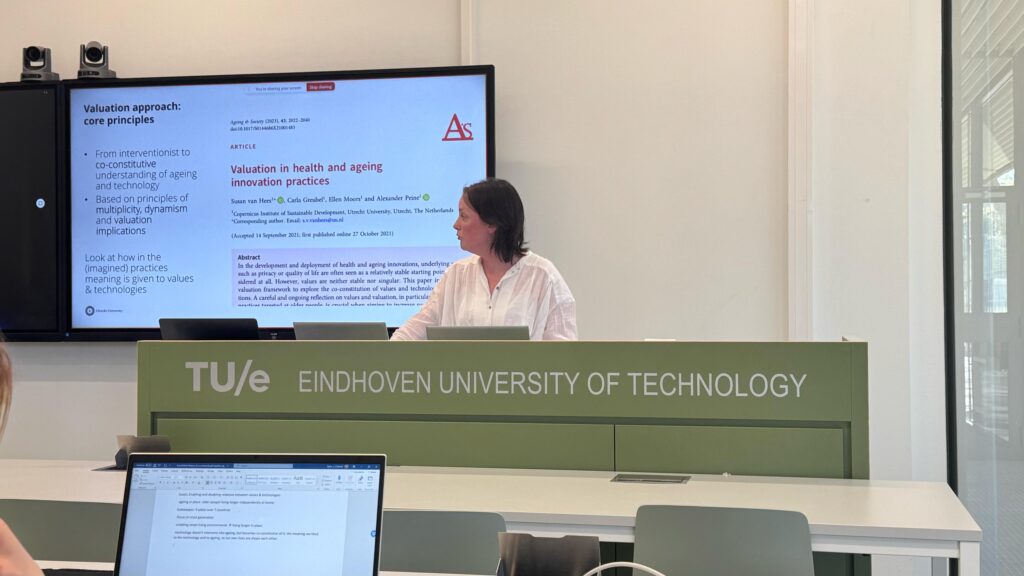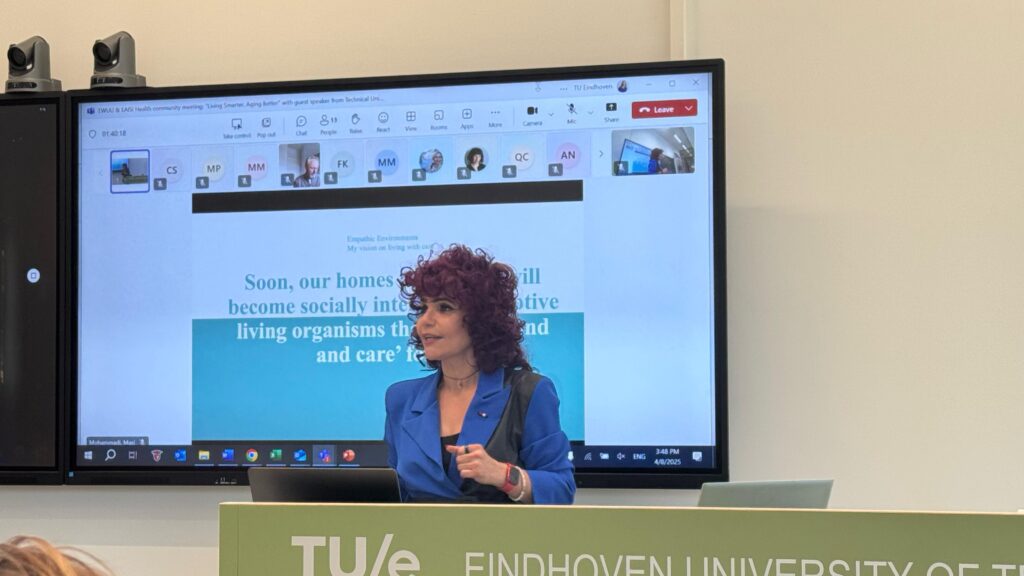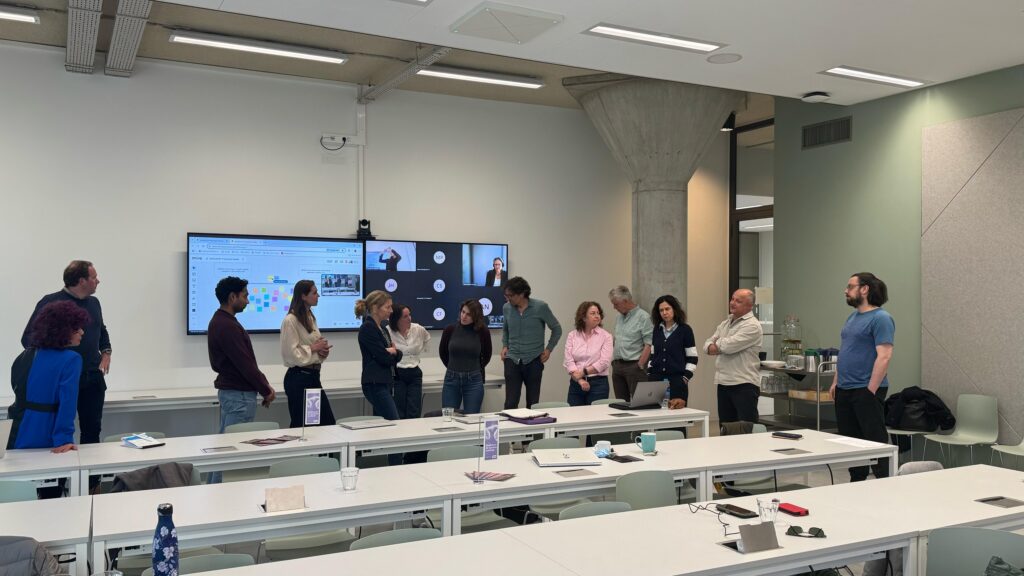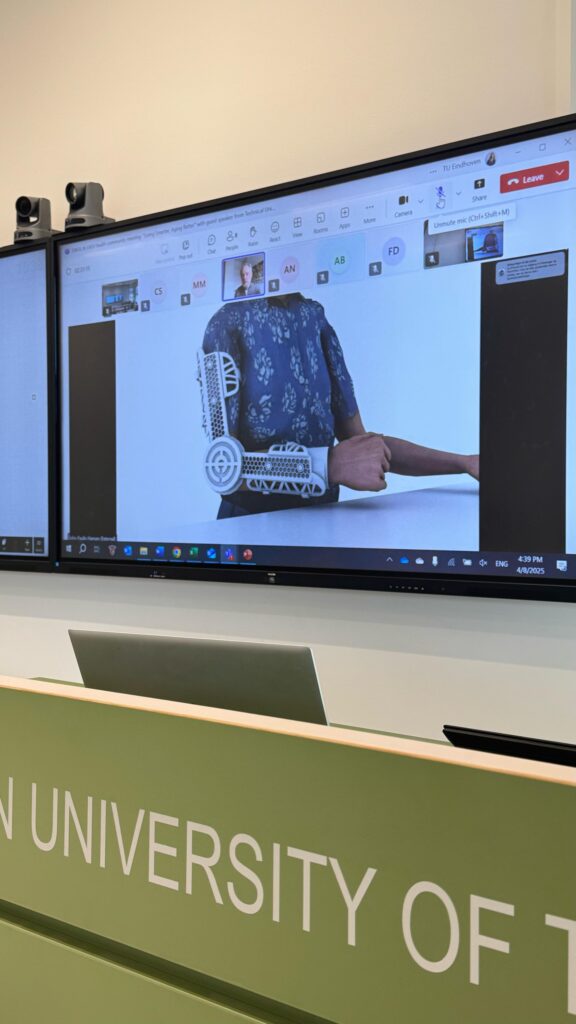On April 8, 2025, the Institute for Preventive Health (i4PH), in collaboration with the TU/e EAISI Health Community, hosted a dynamic EWUU Community Get-Together at Eindhoven University of Technology (TU/e). The hybrid event brought together about 25 researchers from across the EWUU alliance (TU/e, WUR, UU, UMCU) and a special guest from the Technical University of Denmark (DTU), all united by a shared mission: exploring innovative, technology-enabled care solutions that support aging populations in living healthy and independent lives.
The afternoon kicked off with an inspiring session on complementary research within the Health@Home research line.
Susan van Hees (UU) offered an insightful reflection on how technologies can both enable and constrain our values when designing care environments. Drawing from her work in innovation studies, she highlighted how seemingly neutral technologies are embedded with social and ethical assumptions—and how these can influence the daily lives and autonomy of older adults. Her talk emphasized the importance of critically examining the value-laden nature of tech in order to create truly inclusive and responsive care solutions.

Next, Masi Mohammadi (TU/e) showcased the potential of empathic environments—smart, responsive spaces that adapt to the needs and emotions of elderly residents. She shared real-world examples of how architecture and technology can work together to sense, interpret, and respond to behavioral and emotional cues. Her presentation emphasized the role of design in fostering dignity, autonomy, and well-being in aging-in-place solutions.

Masi also shared the upcoming plans for the i4PH Health@Home research line. Over the coming year, she will lead a critical evaluation of its current direction and scope. She emphasized that the central question—how can technology help older adults live independently at home for longer?—may need to be revisited. To stay aligned with both societal needs and the evolving research landscape, the research line could benefit from more concrete and timely themes that address today’s pressing challenges.
Following the first two talks, participants engaged in a hands-on interactive and hybrid Embodied Mapping exercise, sparking conversations around the ethical, social, and practical dimensions of integrating smart technologies into daily life of elder people and into the healthcare systems. Together they brainstormed about questions such as:
Whether technology can partly replace caregivers in the elderly care or more human interaction will be needed in elderly care;
and shall the innovative technological solutions for elderly care be driven by the need of the end users or by the advancements of the technological development.

The event continued with a forward-looking keynote by John Paulin Hansen (DTU), who joined remotely due to personal circumstances. Despite not being able to attend in person, his online presentation clearly demonstrated the potential of AI-driven digital twins in at-home rehabilitation. He illustrated how technologies like smart glasses, gaze tracking, and exoskeleton-assisted movement can be integrated to create personalized, immersive rehabilitation experiences for older adults—offering a glimpse into a future where care is not only more accessible, but also more adaptive and human-centered.

The i4PH Community Get-Togethers are all about building bridges between research disciplines, institutions, and real-world challenges. This edition, focused on smart technologies for aging populations, truly embodied that spirit—bringing together diverse perspectives to explore how we can co-create more inclusive, supportive, and tech-enabled living environments for the elderly. Thank you to everyone who participated—onsite and online—for your energy, curiosity, and valuable contributions to the conversation.